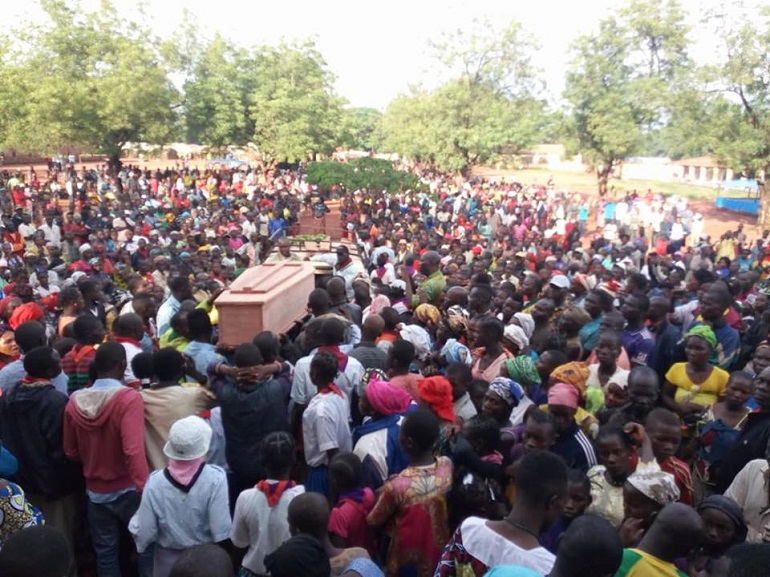Recently the United States Commission on International Religious Freedom (USCIRF) released its 2020 annual report for events that took place in 2019. USCIRF is an independent, bi-partisan US federal government commission to monitor and make recommendations on religious freedom conditions globally. The Commission was created by the International Religious Freedom Act (IRFA), signed into law by President George W. Bush in 1998.
USCIRF complements and usually goes at least a step beyond the State Department’s Annual Report on International Religious Freedom. It was created as a provision in IRFA for just such a purpose. Frequently USCIRF considers countries to be Countries of Particular Concern (CPC) that the State Department report does not, whether because such a designation would be politically radioactive, or some other reason.
One country currently in crisis that it would be dangerous for the US government to overlook is the Central African Republic. Under the 2020 USCIRF report, the Central African Republic (CAR) is no longer considered a CPC. Instead, it is placed under the Special Watch List (SWL), which was created when the International Religious Freedom Act was amended to become the Frank R. Wolf International Religious Freedom Act in 2016.
There are several reasons why we should closely be monitoring the situation in conflict-ridden Central African Republic. Special Watch List status urges the State Department to engage with the country in question. And being on the list is incentivizes the government of that country to address the concerns that USCIRF has on the violations of religious freedom. Distressingly, the entry for CAR finds that there has not been any substantive improvement in the religious liberty in the country over the last 12 months.
The Central African Republic government signed a peace deal with fourteen rebel groups in early 2019. Regardless, the impoverished but resource rich country has struggled with ending the violence that plagues it.
Late last month, on April 29, there were clashes in the northeastern part of the country that killed 25 people according to report in The Daily Mail. Despite the peace accord, it is estimated roughly two-thirds of the country are in the hands of various militia groups that are vying for control of the country’s riches – including diamond deposits.
The road to peace and religious freedom in this part of Africa remains elusive. The country entered into chaotic violence after President Francois Bozize was ousted from power by a coalition of jihadist Muslims known as Seleka. Seleka, which was supported by Sudan, ushered in a period of violence with atrocities committed by both Muslims and Christians over the next five years, despite the presence of a UN Peacekeeping Mission.
USCIRF is not the only entity that is concerned the events that continue to unfold in this part of Africa. The most recent report by the UN Panel of Experts on the Central African Republic to the Security Council stated that challenges do remain for the country.
The Panel of Experts’ report found that discrimination, mistreatment, and violence continue against the civilian population by both militia groups and security providers based on perceived religious affiliations. But the Panel did report that the scale of and number of incidents continues to decrease.
On December 27, 2020 Presidential elections are planned for the country. Following the Presidential election there will be polls to elect a National Assembly in either Feb/March 2021. Preparations for these polls are underway and a heavy security presence is to be expected. The lack of resources available to prepare for free, fair, democratic elections could pose problems and see a repeat of the conflicts from the last seven years.
Vigilance and engagement are needed to prevent a return to the horrific level of violence that existed from 2013 to 2018. In that period attacks against churches were a regular occurrence. Houses of worship were not sanctuaries for those seeking refuge. They were targets and were used to locate those that were to be attacked.
NGOs have begged both the Obama and Trump Administrations to engage in the process of bringing stability to this country that has so much potential. The truth is, though, that the Central African Republic has potential for both good and evil. It has potential to be a place of prosperity and stability with a correct and honest use of its resources. But it also has the potential to become an Islamist enclave.
As the Central African Republic prepares for its next government, the US government should take a serious role, not just providing badly needed assistance, but by helping facilitate continuation of a peace process that will help bring stability not just to CAR, but to the whole region. USCIRF endorses this idea. Let’s hope that others in Washington will, as well.
No comments yet




